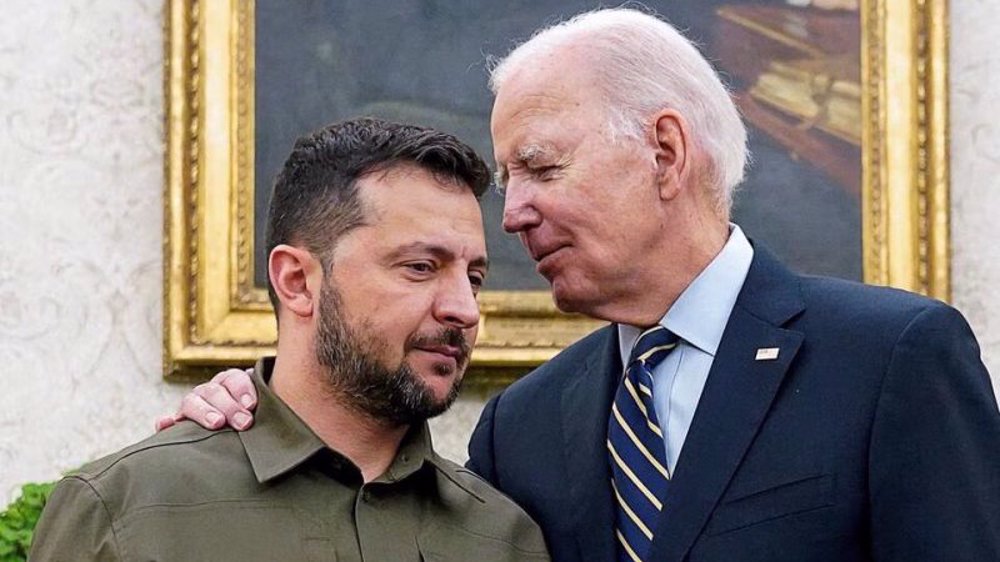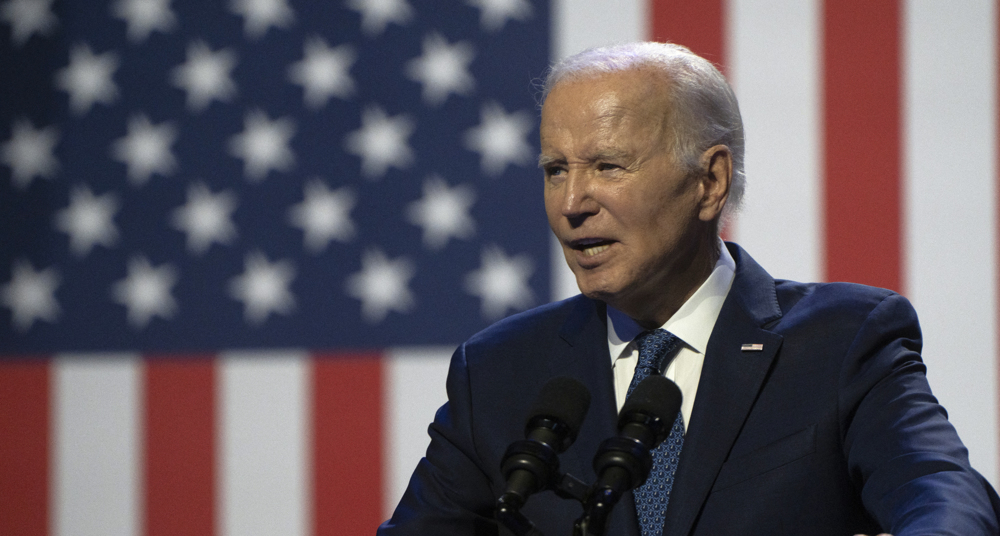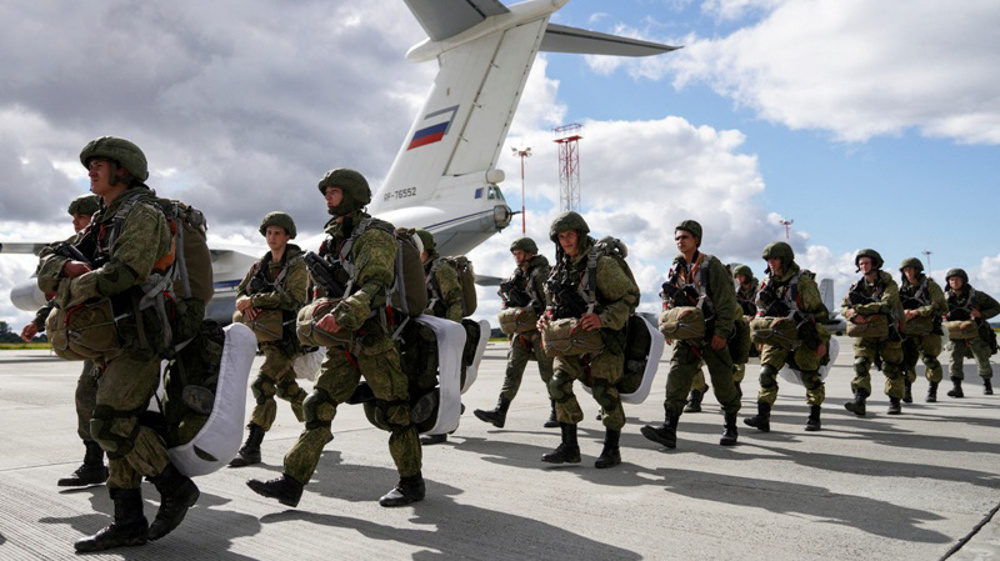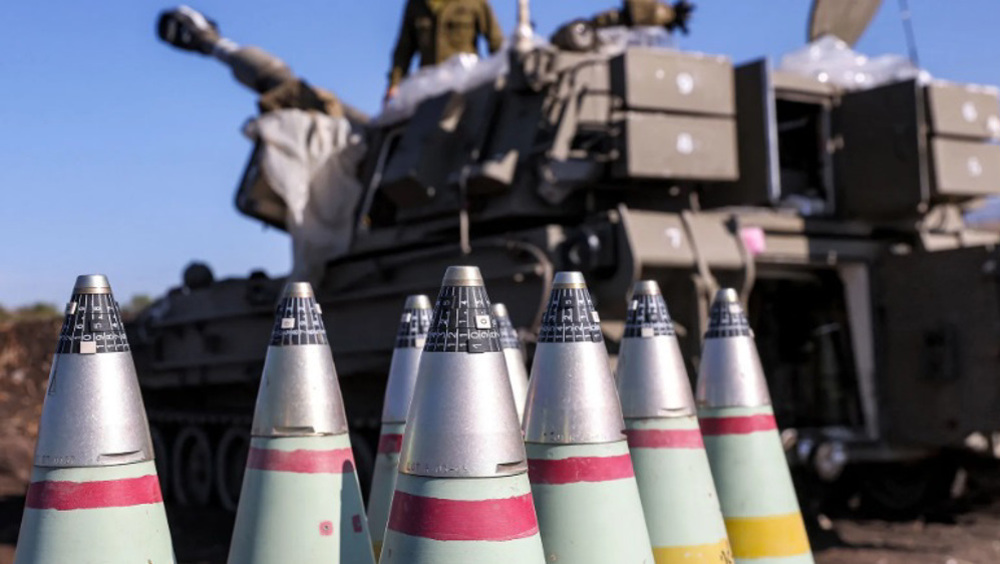Biden fears current disarray in Congress will end in terminating aid to Ukraine
US President Joe Biden fears that the current disarray in Congress will end in terminating aid to Ukraine, which is in desperate need of constant flow of funds and arms to confront Russia.
Unprecedented infighting within the GOP resulted in the removal of Kevin McCarthy as speaker of the US House of Representatives in a historic rebellion by far-right Republicans on Tuesday.
This development, which unfolded amid efforts to avert a government shutdown, prompted Biden on Wednesday to express worries that such disarray may eventually lead to a halt to the current flow of aid to Ukraine.
“It does worry me ... but I know there are a majority of members of the House and Senate in both parties who have said that they support funding Ukraine,” Biden said.
The American president had asked Congress in July to approve $24 billion in aid to Ukraine, which Ukraine supporters - Republicans and Democrats - had hoped could become law as part of a spending bill.
“I'm going to make the argument that it’s overwhelmingly in the interests of the United States of America that Ukraine succeeds. I don't think we should let gamesmanship get in the way of blocking it,” Biden further said.
This is while McCarthy’s ouster has created even greater uncertainty about the fate of that request as at least one of the candidates to replace him - Rep. Jim Jordan - has publicly said that he opposes additional funding for Ukraine.
A day earlier, the White House said that current funding levels would last only about two more months, as Biden said that he would give a major speech soon to make the case for why it is necessary to help Ukraine repel Russian forces.
Separately on Tuesday, Biden told US allies in an assuring message that its aid to Ukraine would continue unimpeded as Ukrainian forces press on with their slow and grinding counteroffensive against Russians.
“The president's message was that the U.S.A. could certainly continue to be relied on in this matter in the future," German Chancellor Olaf Scholz told reporters in Berlin.
Ever since the beginning of the war, Western countries, led by the US, have consistently supplied Ukraine with tens of billions of dollars' worth of sophisticated weaponry, a step that Moscow has time and again warned would only prolong the hostilities.
Washington has so far approved four rounds of aid to Ukraine in response to Russia’s war, totaling about $113 billion of taxpayer dollars, with some of that money going toward replenishment of US military equipment that was sent to the frontlines.
However, support for military aid to Ukraine seems to have waned to some extent.
Back in August, results from a poll conducted by CNN between July 1 and 31 among 1,279 American adults revealed that 55 percent of those surveyed said Congress should not authorize additional military aid for Ukraine, as opposed to 45 percent, who said the Capitol should approve of such funding.
Republican Senator Rand Paul echoed that sentiment this week, saying criticism of Ukraine funding is a “growing movement” on Capitol Hill.
“We have problems funding Social Security, we have problems funding, Medicare, Medicaid, all the things that have already been promised to our people we have trouble funding, and we just don't have extra money just to be sending to another country," he told Fox News Digital in an interview this week.
Paul went further and criticized Kiev for its alleged lack of democracy.
“So, a country that doesn't have elections is hard-pressed to be describing themselves as a paragon of democracy,” he added.
On Wednesday, Western allies of Ukraine said that they were running out of their stocks of ammunition as most of the thousands of shells Ukraine fires every day come from the US-led NATO.
“The bottom of the barrel is now visible,” Admiral Rob Bauer, the US-led military alliance's most senior military official, told the Warsaw Security Forum, adding that governments and manufacturers must “ramp up production in a much higher tempo.”
Moscow has repeatedly warned Western leaders against the continued supply of weapons and munitions to Ukraine, pointing out that such measures will not stop Russian troops from defending its objectives.
China ‘firmly opposes’ US military aid to Taiwan
VIDEO | Press TV's News Headlines
President Yoon Suk Yeol to be removed from office
At least 19 Gazans killed by Israeli airstrikes since dawn: Medics
Leader: Iran neither has nor needs proxy forces
US fighter aircraft shot down ‘in friendly fire’ amid aggression on Yemen
Yemeni FM: Israel’s sponsors accountable for ongoing aggression on Sana’a
Eight Palestinians killed as Israel attacks Gaza school, hospitals












 This makes it easy to access the Press TV website
This makes it easy to access the Press TV website